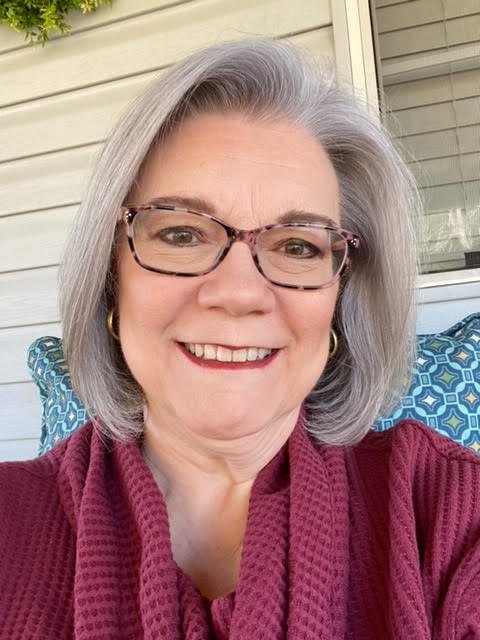Diagnosing a Rare Disease: Sandra's Birdshot Uveitis Story
As part of Birdshot Uveitis Society of North America's efforts to commemorate Rare Disease Day 2022 on February 28th, each Monday this month BUSNA is sharing the diagnosis story of one of our birdshot friends. As with other rare diseases, many people endure tremendous hardship before learning the name of their autoimmune disease.
Here is Sandra's story. She is one of the lucky ones in that her doctors diagnosed her Birdshot fairly quickly.
Shortly after Christmas, 2020, I visited my optometrist for a regular check-up. My doctor saw that I had blurry vision in my left eye, and I didn’t do well on my visual field exam. He also noticed several other things.
Cells were present in my eyes. I also had inflammation in my optic nerve, posterior pigmentation and a small lesion in my left retina.
I was referred to a retina specialist in Birmingham. There was a lot of fluid behind my retina, and it needed to be secured. I had retina surgery during that first visit.
Within a few weeks my blood work confirmed I was positive for the HLA-A29 gene. Also, the FA test revealed significant “birdshot pattern” inflammation. I was diagnosed with Birdshot Uveitis in early February.
Immediately, I began taking 60 mg. of Prednisone and seeing a retina specialist every two weeks. He happened to be one of our birdshot specialists in Alabama. At that point in my life, I was experiencing weight gain, fluctuating blood sugar, heart palpitations, sleep disturbances, and exhaustion.
By April I was able to secure a wonderful rheumatologist who simultaneously helped me taper off Prednisone and start taking Methotrexate. I was off the Prednisone by July.
By the end of July my eyes were quiet, and I had significant improvement in my vision. In August as the delta variant of COVID hit my son’s family and an immunocompromised friend very hard, I realized how vulnerable I was to the virus while on the maximum dose of methotrexate. Although I had initially tolerated it, I started having more fatigue and losing a significant amount of hair. I was taking several prescriptions to combat the hair loss.
I went off the Methotrexate temporarily, so I could get my COVID booster, and felt so much better. Through much prayer and after weighing risk/benefit, I decided to stop the methotrexate. I talked with both of my doctors, and they agreed that it was understandable, and said that since my eyes were doing well, we could do frequent monitoring. I have been vigilant in following through with all my appointments. If my eyes flare again, we will consider other immunosuppressants.
I also credit much of my improvement to following the advice of my fellow birdies by reducing stress. I truly feel that extreme work stress triggered my BS symptoms. I have retired except for my music ministry staff position at church. I spend time with God each day, reading my Bible and praying.
I have discovered the beautiful stress-reducing benefits of getting outdoors, eating healthy food (although I am not strictly adhering to any particular diet), spending time with grandchildren, enjoying life, and remaining hopeful, even during difficult times.
I was examined in September, November and again today and I can celebrate with thankfulness another good report!
Birdshot has taught me so many things. * Eyesight is a gift never to be taken for granted. * Asking friends/relatives to drive me from my appointments after dilation takes humility. * Take time to fully observe things in nature and try to visually memorize my loved one's faces and hands. *Read every wonderful book I can because I still can. * Realize the difficult journey of many friends with daily health battles, both obvious and hidden. *Listen with compassion to those who are dealing with medication side effects. *Handle stress better *Rest, eat, pray, laugh often, move, just “be present”. *Give thanks to God for making me wonderfully well and walking this journey with me. *Pray for my fellow Birdies who are struggling, encourage them and remind them that they are not alone.
Well, that’s my story so far. It’s only a year old. The story may change tomorrow but our hope doesn’t ever have to change!
Special thanks to Sandra for helping us commemorate Rare Disease Day 2022. We're happy that her Birdshot is stable and wish her well as she continues on her journey!
The words, strategies, opinions, and treatment paths described here are that of one birdshot patient. BUSNA is not a medical organization and provides no medical advice. All birdshot patients are urged to follow the advice of their eye disease specialist who can monitor and help manage disease progression.
BUSNA encourages all those with birdshot uveitis to read the Birdshot Survival Guide for a broad view of the disease and its common practices.



